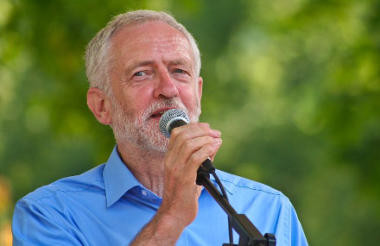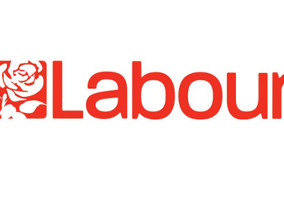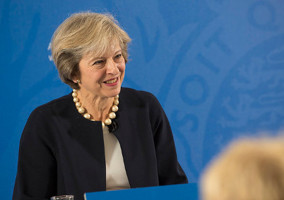Overnight, a draft version of Labour’s election manifesto was leaked to the press. CAF's Steve Clappeton looks at five key things we’ve learned from their proposals as they stand.
1. Scrapping the Lobbying Act
The Lobbying Act, introduced before the 2015 election, makes it more difficult for charities to speak up for their beneficiaries and advocate on their behalf at elections. Perhaps more than the actual legislation itself, what is particularly troubling is the tone taken around the Act, which has led many charities to err on the side of caution and refrain from undertaking legitimate activities because they feared breaching it. Lord Hodgson’s review and proposed changes to the Lobbying Act received widespread support across the sector; Labour’s reaffirmed commitment to scrapping it will be even more popular.
2. Using charities to develop international ties
As the UK leaves the European Union, our place in the world becomes a little less certain. The Government is increasingly looking to soft power as a way of influencing the international agenda, and the ties UK-based charities operating overseas develop can help to promote the principles and values that we hold dear. Labour’s commitment to retaining the 0.7 per cent aid spending commitment will be popular amongst charities, as will putting civil society organisations at the heart of strengthening communities in the Global South. The UK is viewed as a global leader for our civil society, and rightly so; we should build on this and use our resources to help other countries create the environment to allow their own civil society to flourish.
3. A vacuum for volunteering
Despite being – like all political parties – essentially powered by volunteerism, there is little acknowledgement of the important contribution that volunteering and social action makes to society. Although talking the language of community empowerment, there is surprisingly little about how to get more people of all ages involved in taking action to improve their own community. Over eight million people a year volunteer in the UK and contribute a great deal across the country. Unlocking even more of our collective volunteering potential could have a transformative effect on society, but collaborative action between government and charities is needed to make that happen.
4. Action to tackle loneliness
Loneliness is a growing social problem that the Jo Cox Commission on Loneliness, amongst others, is taking the lead in tackling. Labour’s draft manifesto seeks to bring communities, business and civil society together to tackle it. There is a cross-party consensus on the need to tackle loneliness, and bringing together different sectors is an important step to delivering practical solutions. CAF’s proposed Post-Careers Advice Service suggests increasing volunteering opportunities as a way of reducing levels of loneliness and improving people’s health and wellbeing. The Labour Party is correct to put civil society front and centre of efforts to address this growing social problem.
5. A missed opportunity?
Many of the issues that the Labour draft manifesto discusses are ones where charities have so much to offer. Whether it’s mental health, homelessness and housing, social care or community cohesion, charities are leading the way in coming up with the solutions. However, the draft manifesto says little about how a Labour government would utilise this experience, expertise and enthusiasm, and put our charity sector at the heart of delivering their plans for government. Charities, like all political parties, want to build a stronger Britain – parties need to maximise the contribution that they can make and deliver a cohesive vision for the role of charities in modern Britain.
Much of this is not a surprise – as CAF’s own Rhodri Davies wrote in Civil Society in 2015, a Corbyn-led Labour Party always looked likely to be more at home with charity campaigning, with the role of charities in delivering public services less easily compatible with his ideology. Today’s draft manifesto leak seems to render that early assessment correct – we’ll be looking closely at the final document next week to see whether the party rethinks, and broadens the scope of the role it sees for charities.
Steve Clapperton leads the campaigns and public affairs team at Charities Aid Foundation.
Related articles












